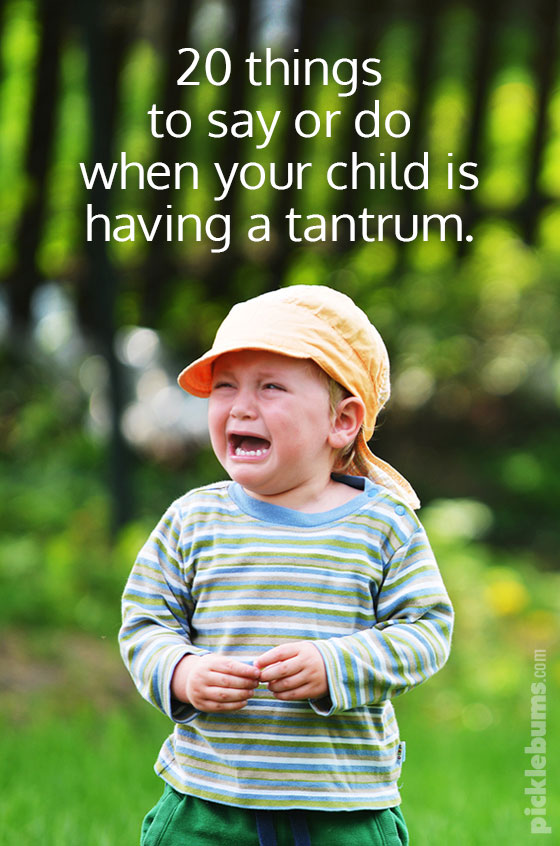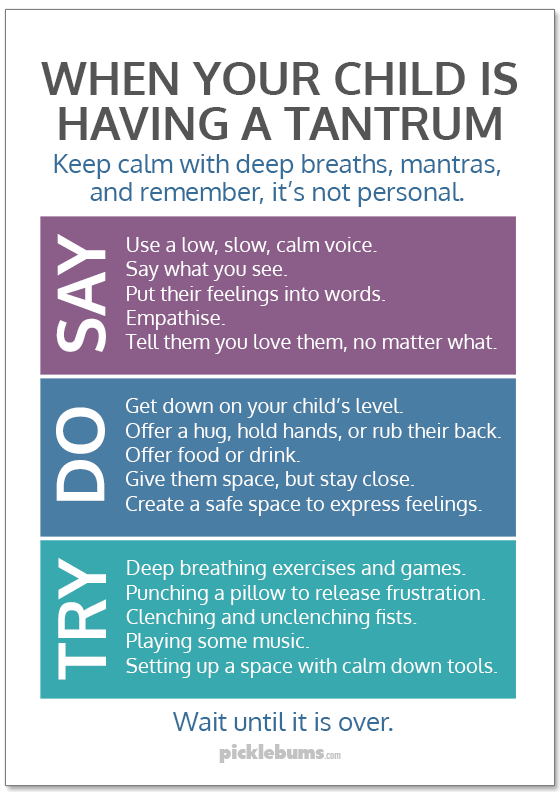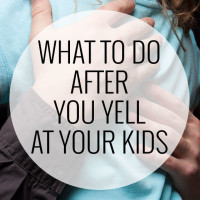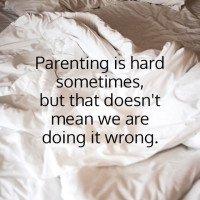He was lying on the floor howling like someone had stuck bamboo skewers under his fingernails in some medieval torture chamber. But it wasn’t the Spanish Inquisition, it was the library and my three year old was being anything but quiet. He was chucking a mega wobbly and I was standing above him, juggling a baby on one hip, and wishing the ground would open up and swallow us.
I had to make him be quiet. I had to stop the tantrum. I had to get out of there!
“I know you are mad” I hissed “but we need to leave… NOW.”
I grabbed him by the hand and dragged him, still screaming, through the aisles of books, past the dirty looks, and out the front door, where we all flopped down on the grass out the front.
Could I attempt to wedge him into his car seat and try and drive home with him screaming? Could I try and bribe him with something? Could I yell at him and threaten him with never ever coming back to the library? I had no idea what to do, so in the end we just sat there and waited till the tantrum passed.
This was not the first public tantrum I had lived through as a parent, nor would it be the last, but it was the one that made me feel most helpless.
What on earth can you do when your child is having an epic tantrum?

Tantrums happen when a child’s brain is overloaded and they are totally overwhelmed by feelings they can not manage or communicate.
Sometimes they happen over things that seem totally ridiculous or trivial to us adults, but they are usually not wilful choice made by our child to try and manipulate us, but even if they are, ignoring or punishing a tantrum doesn’t help. Ignoring the tantrum or putting the child in time out doesn’t help our kids learn how to manage these big overwhelming emotions, and it doesn’t teach them more appropriate ways to ask for what they want or need.
In a perfect world we can do things to prevent tantrums – make sure our kids are not hungry or overtired, watch out for and avoid triggers, make sure our kids have enough of our attention.
But sometimes, even with all the prevention in the world, you can’t avoid things going pear shaped.
So if ignoring and punishing a tantrum doesn’t work, what can you say or do when your child is having a tantrum?
Things Your Can Say Or Do When Your Child is Having a Tantrum
If you are like I was back then at the library, and you just have no idea what to do when faced with a tantrum, then this list of ideas might help. Different things will help in different situations, with different kids, so pick and choose the things you think will help most for you.
Before things get completely overwhelming…
If you notice things are on the downward slide and can step in before it gets totally out of hand, you’ll be more likely to have an impact. Try some of these ideas as soon as you notice things are going bad or at the beginning of a tantrum.
I know it’s easier said than done, but actively work on finding and keeping your zen. Kids instinctively pick up on our emotions, so trying to stay calm can stop things from escalating and it shows your child that you can calm down in difficult situations.
Don’t look down from above, get down on the floor, sit beside them, meet them where they are.
speaking in a slow, low, voice can make you sound like you are calm and in control, even if you are not really!
Keep it simple and factual – “You are crying and mad and wanting to kick things. You don’t want to leave”
“You wish you could stay at the library, but you can’t and it makes you feel angry”
Let them know you understand – “It’s hard to manage when your feelings are so big”
Model deep breathing, or try one of these breathing exercises. Offer a hug or a tight squeeze, or rub their back if they will let you.
Things are always worse when you are ‘hangry’, and offering food or a drink may break the cycle long enough for the child to gain some control.
Suggest they punch a pillow, clench and unclench their fists, or run really fast.
If you are at home set up a clam space and stock it with calming tools such as sensory bottles, fidget toys, headphones and audio books etc.
When things have progressed into full on meltdown mode…
Sometimes no matter what you do or say, those overwhelming feelings are just too big and wild and there is no stopping them.
When that happens you could…
Deep breathing, taking a short break to compose yourself, repeating the mantra ‘this too shall pass’, reminding yourself that this is not personal.
Get out of range of flailing arms and kicking feet, but stay close by if you can.
Tell them you love them, no matter what, and that you will stay close by if they need you.
That might mean leaving a public place, or staying put and dealing with the dirty looks. Or, if you are at home, it may mean asking siblings to give the child some space and just waiting it out.
Sometimes all you can do is wait until it is over.
And after the tantrum?
Do all these things again – stay calm, say what you see, put their feelings into words, encourage more appropriate ways to express their frustration or needs, and remind them that you love them, no matter what.
And then go and eat half a block of chocolate and hope your good karma means you don’t have to deal with an epic tantrum again… at least for a while!
Need a reminder?

You can download this A4 printable poster here.
This printable is an A4 sized pdf file, you will need a pdf reader such as adobe acrobat to open it. If you are printing on US ‘letter sized’ paper be sure to select ‘fit’ or ‘shrink to fit’ from your printer options.
Please remember that the printables at picklebums.com are for personal use only, you may not sell, share, or link directly to these files.
What do you do when your child has a tantrum?
Have you got any tips to share? What works for you when you need to help your child calm down, or just make it through until the tantrum subsides?
If you’re having a tough time as a parent right now, these posts might help:




This is really helpful! Simple and easy to remember for little children. Great work!!
It seems giving food or drink could lead to emotional eating?!
I can see the connection but I think giving food or drink because the child is hungry or thirsty (and these are often reasons kids struggle to manage their emotions) and saying eg ‘are you hungry?, are you thirsty?’ is different to giving food or drink to try and distract them or make them feel better and saying ‘here eat this to make you feel better’. But you need to do what feels right for you and your child in each situation.